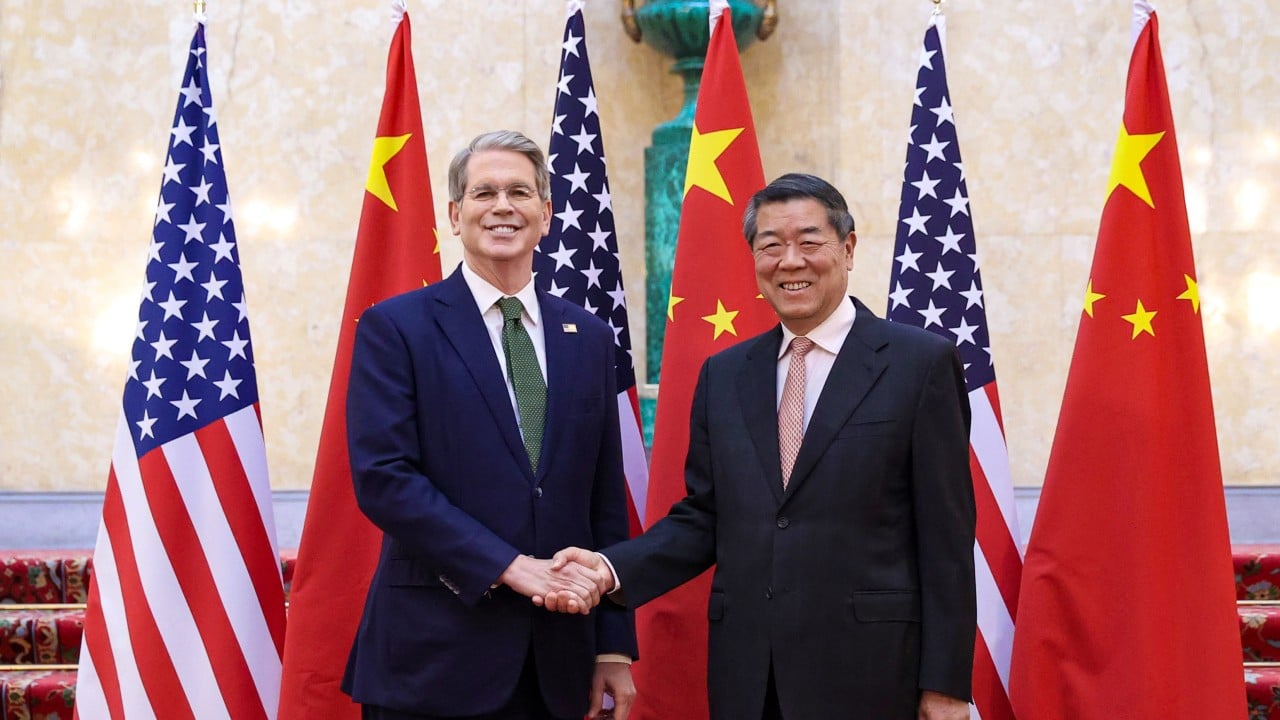
The latest US-China trade talks may have alleviated concerns among some Hong Kong re-exporters, but the sector should remain cautious because President Donald Trump’s administration has been accused of creating crises to gain bargaining power, according to observers on Thursday.
High-level officials from the United States and mainland China concluded their two-day economic and trade consultation mechanism meeting in London on Wednesday.
Trump announced that a trade agreement had been reached with the mainland, stipulating that tariffs on Chinese imports to the US would increase from the current 30 per cent to 55 per cent, while tariffs on US exports the other way would remain at 10 per cent, pending approval from himself and Chinese President Xi Jinping.
According to Trump, the US would also gain access to the mainland’s magnets and all necessary rare earth elements, while certain provisions would be offered in exchange, including allowing mainland students to study at American universities.
Gary Ng Cheuk-yan, a senior economist at Natixis Corporate and Investment Bank, suggested the deal could offer a slight benefit to Hong Kong, although it was too early to say the dust had settled between the two countries.
“For Hong Kong, such a deal may help stabilise its US-China re-exports with less concern about electronic equipment supply chains, which is the largest trade item. Given the less intense environment, the front-loading demand may be lower than in the scenario of a full-fledged trade war,” he cautioned.
“There is no guarantee that what we see right now will remain, and more restrictions can return at any time, especially as the US includes China clauses in its deals with other countries, which may also affect Hong Kong.”



















